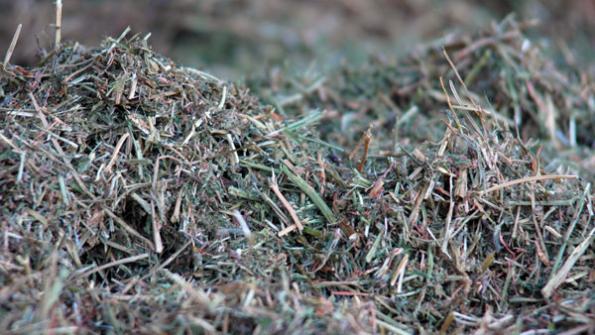Forage Sampling Cattle Feed Is Particularly Important This Year
If there is any year to sample your forage in beef cattle feed, it is this year.
September 21, 2012

Purchased and drought-raised hays and forages should be sampled and assayed for nutrient content and the presence of toxins, such as nitrates and prussic acid, to ensure an adequate beef cattle feed nutrition program.
Iowa State University Extension specialists suggest a forage test is only as good as the sample assayed; they recommend sampling forages by “lot.” This may be a field or cutting, but is always a distinct entity. Care should be taken when sampling purchased forages not to combine multiple lots in a single sample.
The best time to assay is as near to the time of feeding or purchase as possible. Heating or weathering during storage can change the nutritional value of forages over time, changing both value and quality.
Use of a core sampler or hay probe is the best method of collecting hay samples. A core sampler is a sharpened tube that collects an accurate representation of the actual proportions of leaves and stems as they exist in the bale.
Bales and stacks of hay should be core sampled from 20 different locations. Sample square bales from the center of an end, and round bales from a tight side about midway from both ends. Drive the core tube at least 12 in. into the bale.
The final sample should be 1-2 quarts in volume and weigh about ½ lb. If a sample is too large, it can be reduced according to a procedure developed by Oregon State University animal scientists. Mix and spread the entire sample uniformly on a flat surface, such as a sheet of plywood, covering an area of nine quadrants (6 in. by 6 in.) in a tic-tac-toe arrangement and collect the middle vertical column.
Samples should be labeled with a description, the date collected and identity code and promptly shipped to a forage testing laboratory.
Forage Sampling Resources:
Scott B. Laudert, Ph.D., is a beef cattle technical consultant and former Kansas State University Extension livestock specialist based in Woodland Park, CO. He can be reached at 719-660-4473.
You might also like:
Ag Lending Tips For Cattle Producers
Cattle Market Weekly Audio Report, March 9, 2013
You May Also Like



